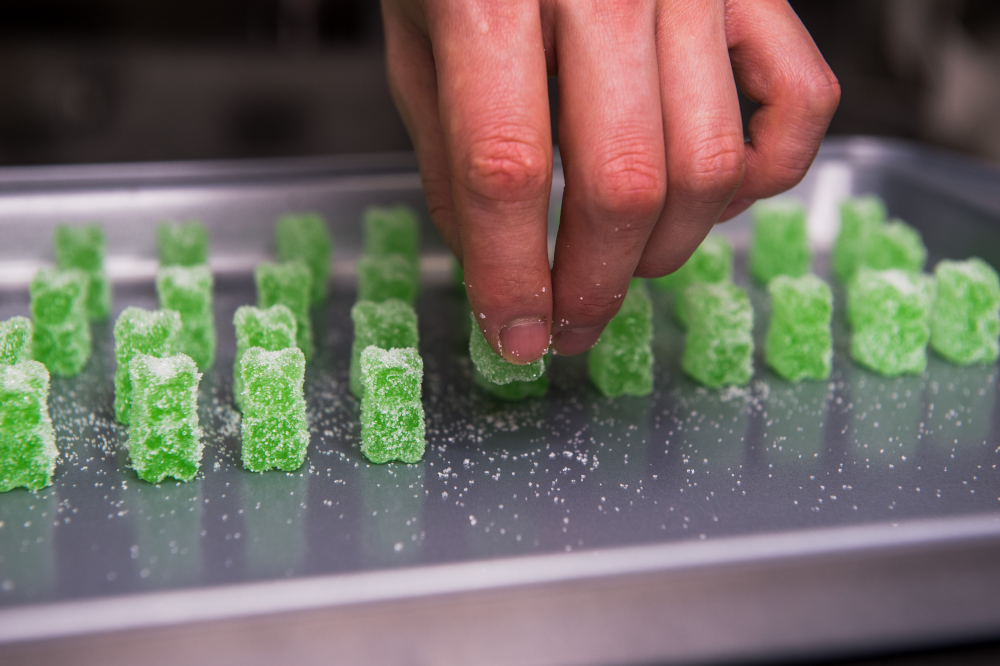Intoxicating hemp products are being removed from the market in South Dakota, Louisiana, Iowa and Nebraska as a result of recent legislative and legal developments.
In South Dakota, a federal judge denied a request to block the state’s new law banning products containing the psychoactive hemp-derived substances, synthetic forms of THC that are sold as a substitute for marijuana.
The law, signed by Gov. Kristi Noem in March, and which took effect yesterday, prohibits the production, sales and distribution of “chemically modified or converted industrial hemp,” and specifically bans delta-8 THC, delta-9 THC made from hemp, delta-10 THC, THC-O-acetate, HHC, THCP, and “any other THC isomer, analog, or derivative” of industrial hemp. Violations are defined as Class 2 misdemeanors.
The South Dakota law targets gummies, vape pens, pre-rolled joints and smokable hemp flowers that contain the intoxicating compounds, often referred to as “gas station weed,” “diet weed,” “fake weed,” and “marijuana light.”
U.S. District Judge Eric C. Schulte ruled Saturday that the law doesn’t improperly interfere with interstate commerce, and the state acted within its police powers to protect public health. Schulte said the plaintiff in the case, Pierre-based retailer Hemp Quarters 605, was unlikely to succeed in challenging the law’s constitutionality.
Under Schulte’s ruling, Hemp Quarters 605 can proceed with its lawsuit, but the state Attorney General’s office could prosecute the company in the meantime.
Louisiana
In Louisiana, Gov. Jeff Landry late last month signed House Bill 952, which forbids the sale of intoxicating hemp-derived products at gas stations and licensed alcohol retailers. The ban includes flowers from hemp that contain THCA, a substance that turns into psychoactive delta-9 THC when smoked.
While hemp-derived THC mixed into beverages is legal, such products cannot be packaged in containers smaller than 12 ounces. Also, the synthetic hemp compounds may not be added when beverages are served in restaurants or bars, and packaging or marketing materials that might appeal to children are prohibited.
The new statute sets the total amount of all forms of THC allowed in consumable hemp products at 5 milligrams per serving, and no more than 40 milligrams per package – trace amounts unlikely to produce any psychoactive effects. Products must be submitted to the state health department for approval and analysis.
Iowa
In Iowa, a law took effect yesterday that bans intoxicating hemp compounds and dried hemp flowers intended to be smoked or otherwise inhaled. Alcoholic beverages that contain THC “including any isomers, derivatives, or analogs of THC, whether naturally occurring or synthesized” are also prohibited.
The Iowa regulations also restrict non-psychoactive hemp-derived CBD to those 21 years of age and older; limits consumable hemp products to less than 4 milligrams of THC per serving and 10 milligrams per package; creates civil and criminal penalties for businesses that sell consumable hemp without first registering with the state; allows the state Health and Human Services Department to confiscate non-compliant products from retailers; and
Two hemp beverage companies located in the state filed a federal lawsuit challenging the restrictions on THC content in hemp consumables, and a judge said last week she may consider blocking the law.
Nebraska
In Nebraska, the attorney general announced settlements last week with three vape shop owners the state said violated consumer protection laws on labeling and deceptive advertising, and warned of the potential for contamination in intoxicating hemp products sold by the vendors.
The lawsuits filed by Attorney General Mike Hilgers underscored the potential health risks of solvents and substances used to make the “high”-producing hemp substances.
“I am proud to announce these settlements, which represent important steps towards getting these untested, mislabeled, and dangerous THC products off the shelves in Nebraska,” Hilgers said in a statement.
The three parties who settled with the attorney general’s office agreed to stop selling products that contain the hemp intoxicants and to turn over unsold inventory so it may be destroyed. Hilger called on the other retailers his office has sued to also negotiate settlements.
The state has filed a total of 11 lawsuits against vape shops selling products containing delta-8, the most popular of the synthetic, hemp-derived intoxicants.
Federal rules lacking
In the absence of federal laws or rules, states throughout the U.S. are working to get their arms around the runaway market for products that contain the hemp intoxicants, which are sold in convenience stores, bodegas, CBD shops and other retail outlets in the form of gummies and other edibles, vapes and drinks. Most of the psychoactive substances are made by putting hemp-derived CBD through a chemical process in the lab.
Recreational and medical marijuana stakeholders are also lobbying against the products, arguing the hemp intoxicants represent unfair competition because they are not burdened by rules and fees in states that have legal marijuana markets.
Congress has a chance to clarify the legality of intoxicating hemp products by amending the next U.S. Farm Bill, delayed from last year. Proposed new provisions floated in May would close the federal loophole that legalized the substances, but a new Farm Bill likely will not emerge until 2025. In the meantime, states are left to protect consumers from the unregulated products.

